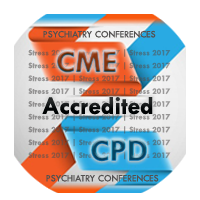
Denny Meyer
Swinburne University of Technology, Australia
Title: Evaluation of a program to reduce stress in the workplace using mixed methods
Biography
Biography: Denny Meyer
Abstract
Stress has been associated with poorer sleep quality, higher fatigue and lower productivity, providing employers with anincentive to provide their employees with programs that build a more resilient workforce. This study provides an evaluation of such a program using mixed methods. The program is called the Global Challenge and is owned by a commercial company called Virgin Pulse. Qualitative and quantitative survey data was collected concurrently, with validation provided by baseline and post-program performance measures for stress, sleep quality and productivity. The large sample size (more than 18000 responses) allowed the use of text mining to provide context for when the program resulted in a recommendation to a friend and what participants would miss most about the program. It also allowed the use of conventional generalized linear models and more modern machine learning methods to identify the other factors, such as demographic characteristics and the program features most used and influenced the success of the program. The results provide an understanding of how and why this program can be successful, isolating the drivers for and detractors from success. Particular strengths of the analysis include the use of a mixed methods design, the triangulation of results using baseline and post-program measures to supplement survey responses, the use of sophisticated text mining (parsing, filtering and clustering) approaches, and the integration of the quantitative and qualitative components of the study using machine learning (decision trees, random forests and gradient boosting) approaches. The results will inform future developments of this and other programs designed to build resilience for handling stress.

